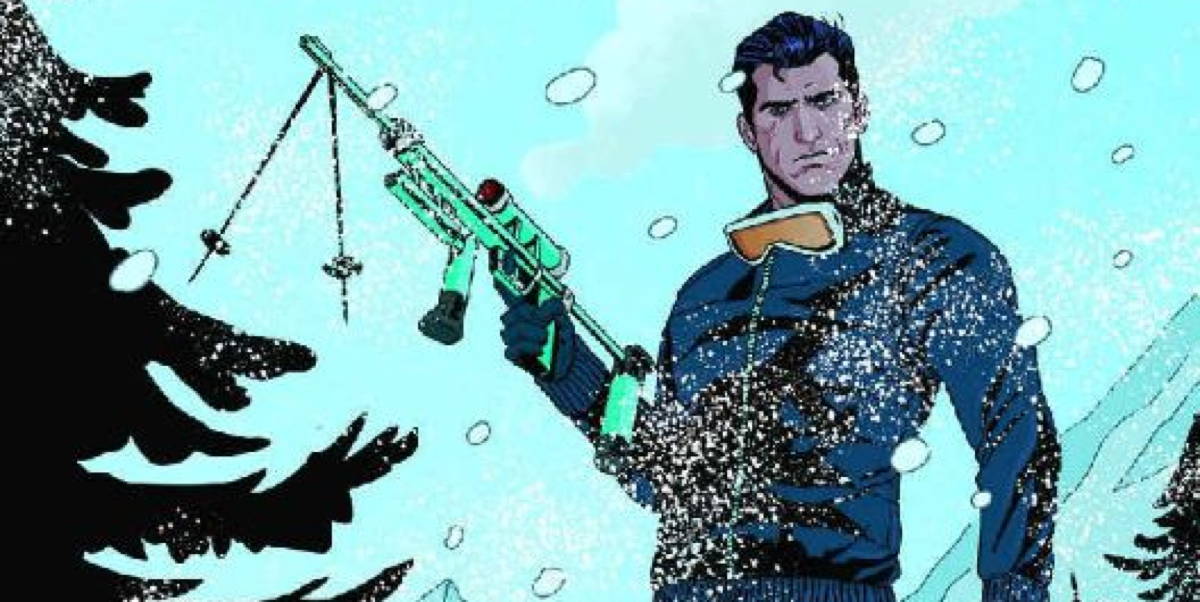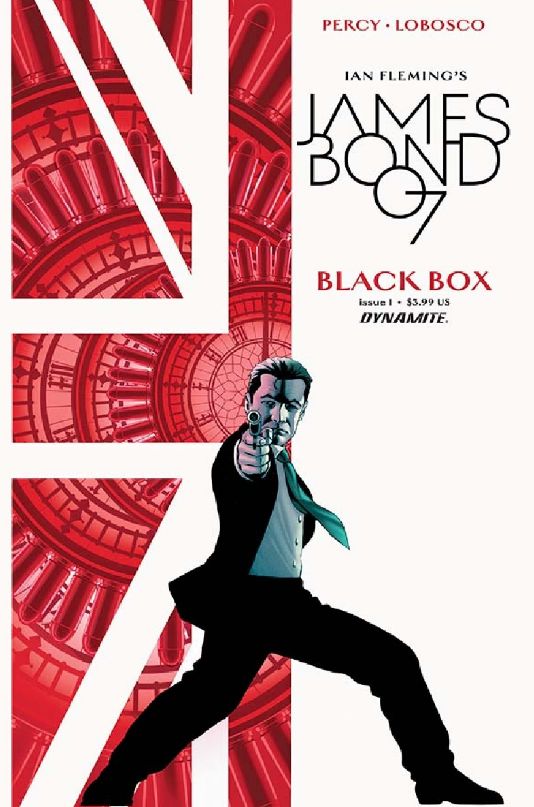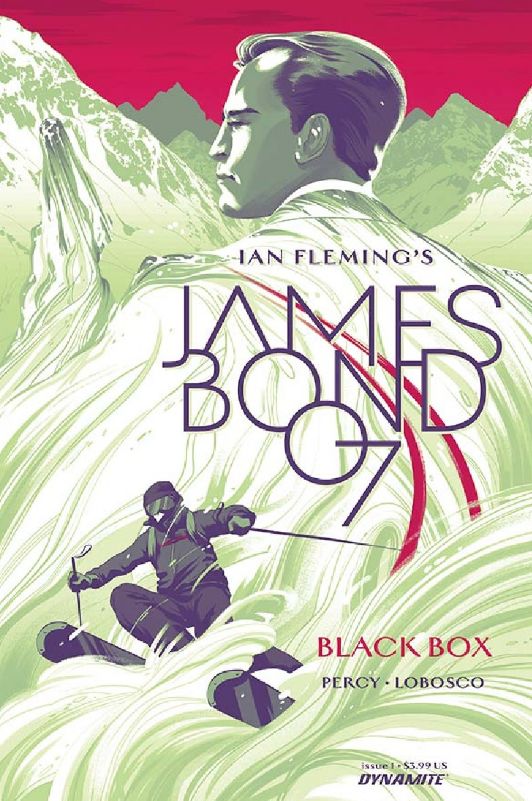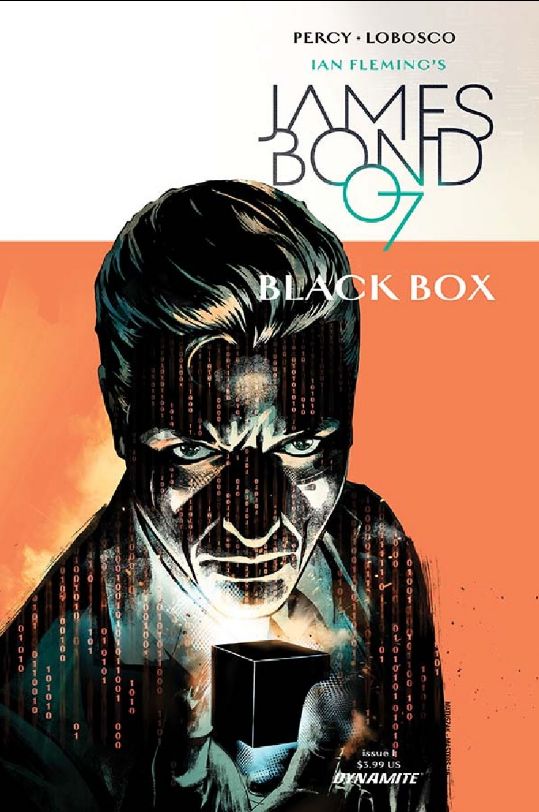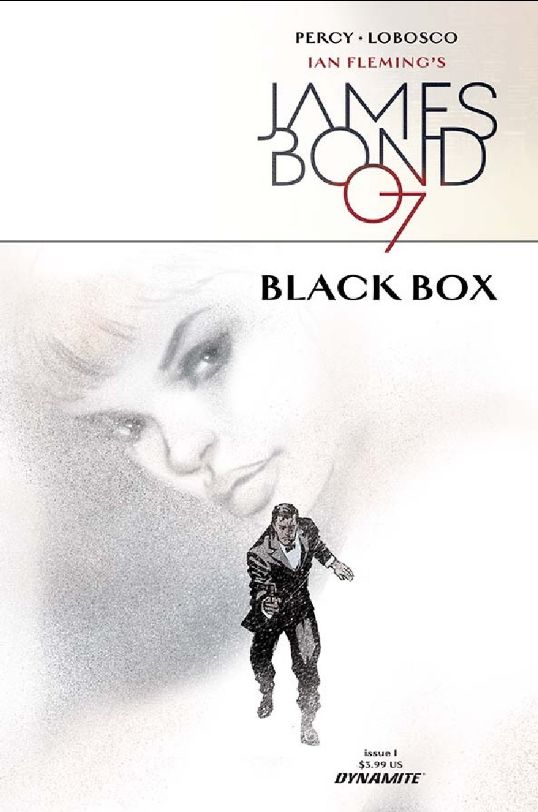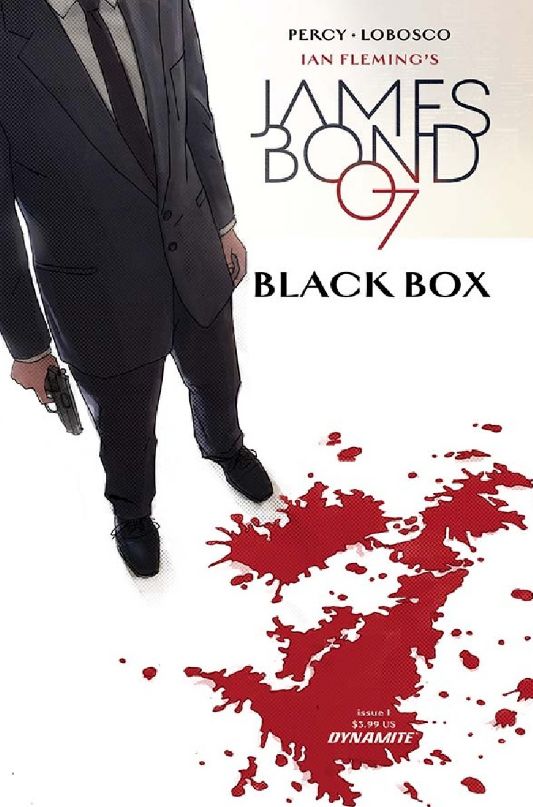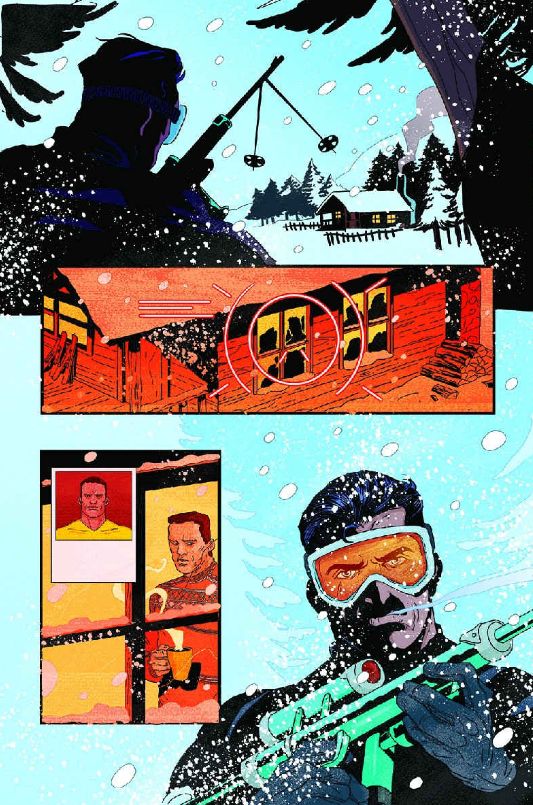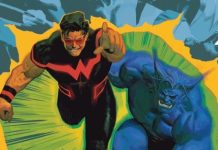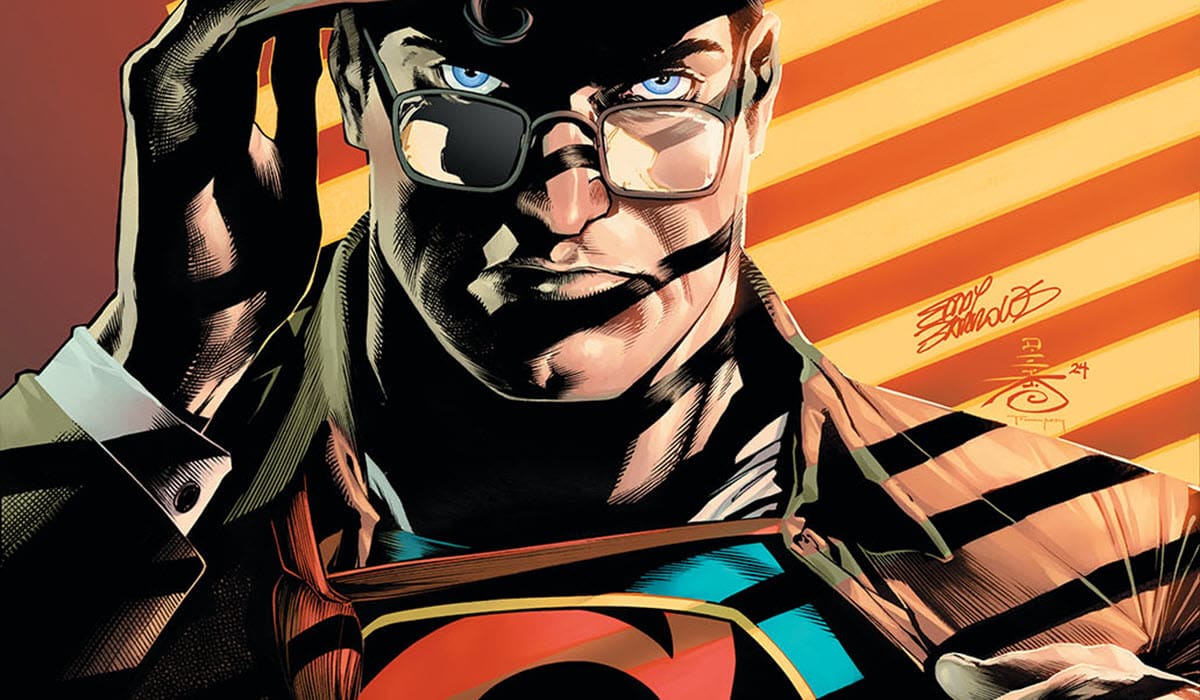James Bond continues to carry out missions at Dynamite Comics, and he has a new adventure coming in March: James Bond… Black Box from writer Benjamin Percy (Green Arrow) with art by Rapha Lobosco and a cover by John Cassaday. We sat down for a chat with novelist Percy for his thoughts on Bond, the state of the world and where spying fits in – timely stuff!
The Beat: Your new James Bond story for Dynamite is about Bond going “across the globe to investigate a digital breach that threatens global security” — it’s almost torn from the headlines! What inspired you to write this kind of storyline and how did current events influence it?
Benjamin Percy: One of my best known short stories, “Refresh, Refresh,” is about the war in Iraq. My novel Red Moon is a post-9/11 reinvention of the werewolf myth, and The Dead Lands is about an environmentally ravaged world. I’m known for taking a knife to the nerve of the moment.
Green Arrow is one of the most political comics being published right now. Every issue has a social justice angle that tips its hat to headline news, channels political and cultural anxieties.
For this reason, and many others (including my longtime obsession with the franchise), James Bond was a great fit. His stories so often offer up cracked-mirror versions of the troubles we’re facing. To that end, we’re so nakedly vulnerable online. Our entire lives are stored and navigated through our phones and tablets and laptops. Click on the wrong link or download the wrong attachment, and you can be burglarized, erased, possessed. My sister’s email was hacked and I received several fake messages from her the same week that my neighbor learned someone else had filed his taxes and collected the return the same week that we learned our credit card information had been pirated and used by someone in Spain.
When I was researching my new novel, The Dark Net (which releases this summer), I interviewed people at Google, Apple, Verizon, as well as several coders and hackers, and they all said the same thing: Russia and China are already inside the digital gates of this country. It’s not a matter of stopping them; it’s a question of what they’re going to do with their access. “Just wait and see,” they all said. “Something’s coming.” And then something came: the news about the potential hacking and compromise of the US election. A mixture of all of this research (along with a healthy serving of imagination) informed my Bond storyline.
The Beat: You’ve said that at one point you wrote down that you wanted to be a spy. What is it about Bond and his milieu that is so compelling for you and for audiences? It’s pretty amazing for a character to last as long as he has.
Percy: Yeah, that was for a career quiz I took in high school. I grew up enamored with the Bond and Indiana Jones movies, as well as the spy thrillers of Tom Clancy. Maybe part of that came from living in such isolation (I grew up in rural Oregon) and dreaming my way out of my little world via these globe-trotting characters.
Why do people love 007? He epitomizes cool. He wears the best suits, drives the best cars, owns the best gadgets. Men want to be him, women want to be with him. He never shies from danger. He always says the right thing. He’s aspirational—someone through whom we can dream of shedding our insecurities and making a real difference in the world.
But that seeming perfection is balanced out by a realistic and relatable flaw. He is emotionally scarred, numb, cold. This is a person who has to do horrible things in order to achieve a greater good. So he drinks heavily and sleeps around and discards those close to him so that he can armor himself against horrors.
The Beat: What is the relationship of this series to the previous work by Warren Ellis? What did you take away from Warren’s version of the character?
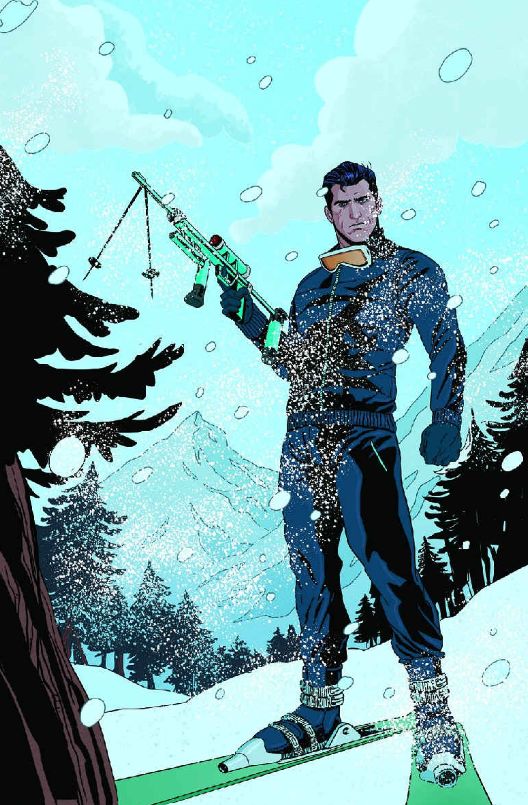
The Beat: Along those lines, it does seem that Bond does change to reflect the times, certainly in the movie casting. What place does a character like James Bond have in the world today where the news is more surreal than anything you can imagine.
Percy: The world does seem pretty surreal right now, but I’m sure that’s how my parents felt during Vietnam and the Civil Rights era—or my grandparents felt during the Depression or WWII—or my great great (great?) grandparents felt during the Civil War. And on and on we can go through the weird whirlpool of history.
It’s in difficult times like these that we turn to heroes, real and imagined, for comfort and inspiration. Bond isn’t a perfect hero—but he’s always fighting for the greater good. Of his country, for the world. And since Bond stories almost always channel the troubles of an era, we’re accustomed to processing and overcoming our worries and fears through him.
The Beat: What else should we know about the story here?
Percy: A ski chase in the French Alps. A deadly gamble in an underground casino. A sumo tournament where the fight extends beyond the arena. Killer sharks. A fight on a speed train. Double and triple crosses. A villain named No Name who molds and wears death masks from his victims. I could go on. This story is wild. And fun as hell. You’ll be able to hear the Bond theme music blaring off every wildly and beautifully drawn page by Rapha Lobosco.
The Beat: You’re best known as a novelist but you’ve made a move to comics, both with Green Arrow, Teen Titans, and now James Bond. How did you make that transition? Were there any unexpected lessons you had to learn?
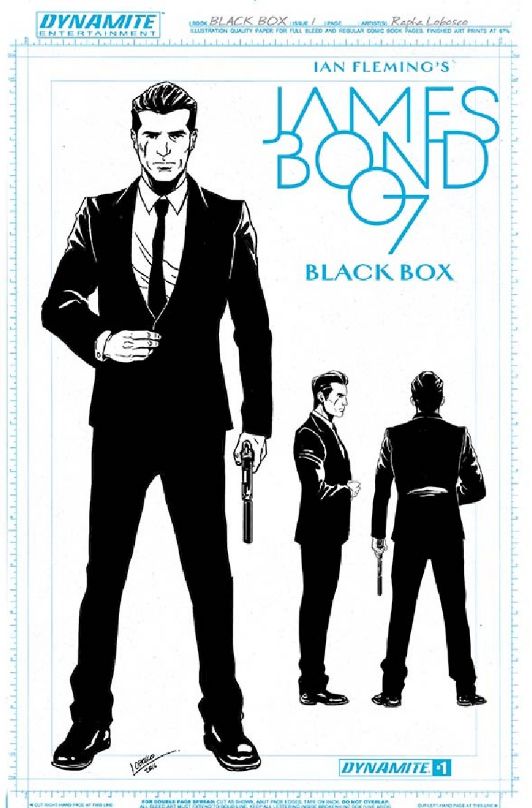
So he very generously shared some scripts and pitches, and I wrote up a 25-page proposal for a series called Red Moon that I sent to Mark Doyle at Vertigo. It was rejected, but I wrote and published it as a novel instead. And I stayed in touch with Mark. Meeting with him in New York when on book tour, pitching him more and more and more ideas. Finally, there was an opening in Detective Comics—and I landed a two-issue Batman arc. Which is a ridiculously awesome way to debut.
From there, I was invited by Brian Cunningham to pitch Green Arrow (I was on a shortlist of possible writers). And after writing Green Arrow for close to a year, I was invited to pitch Teen Titans. And then Dynamite came alone and asked if I’d be interested in writing for them. I said, “I’m super busy right now, but it would be impossible for me to say no to Bond. Good thing Warren is writing it.” And they came back and said, “He’s actually stepping away from the series. Are you truly interested in taking over?” I wrote up a pitch—and a month or so later I was banging out the first script.
So comics have unexpectedly and gradually and awesomely taken over my life. I couldn’t be happier or more excited to attack the keyboard every morning. I know it’s corny to say—but it’s true: this is a childhood dream come true.
You asked about unexpected lessons…jeez…I could write a twenty or thirty page response to this question alone. It’s been a steep learning curve. I’ve only been writing comics regularly since June 2015. I look back on my first few stories and cringe at some of the mistakes I made. The placement of splash pages, the abundance of prose, the treatment of characters, the juggling and arrangement of B and C plots, etc. I gain new skills with every issue I write, and in part that’s because working in this field is all about collaboration: the artists and editors challenge me to be a better storyteller.
Disclosure: Dynamite is a regular sponsor of The Beat.


